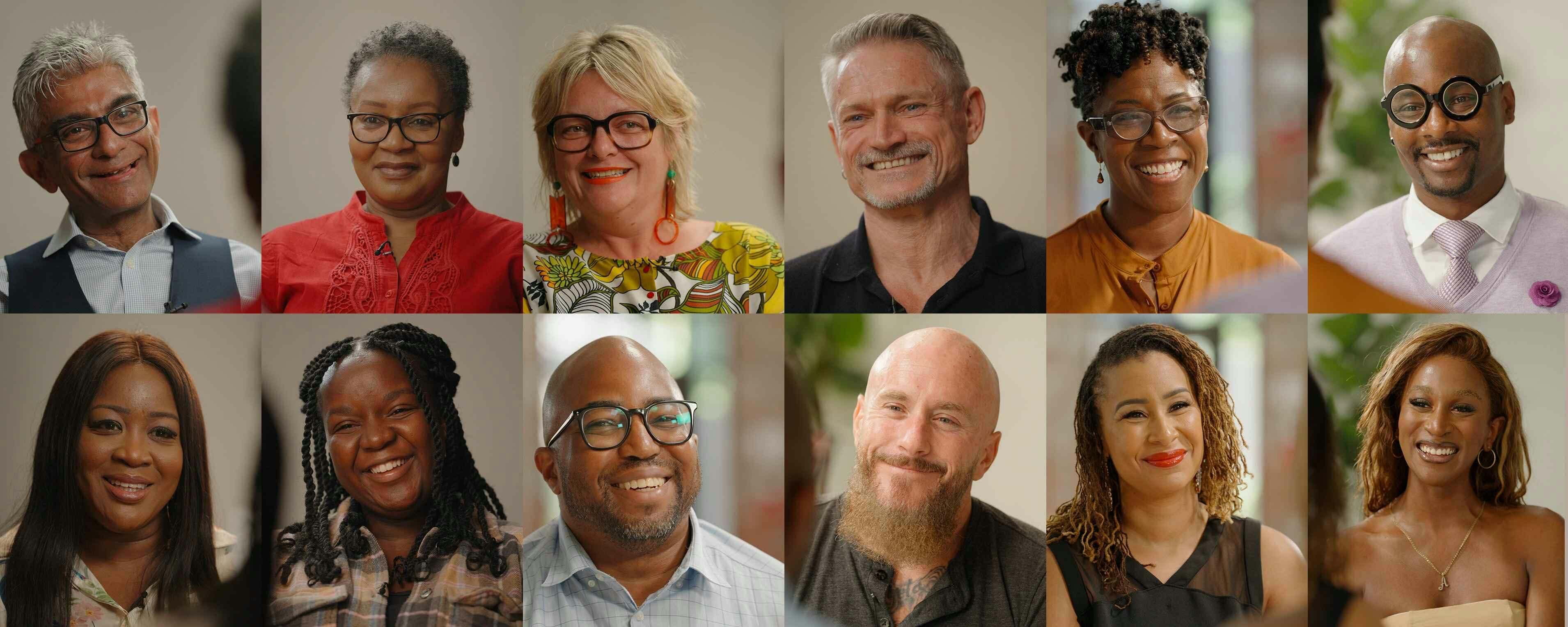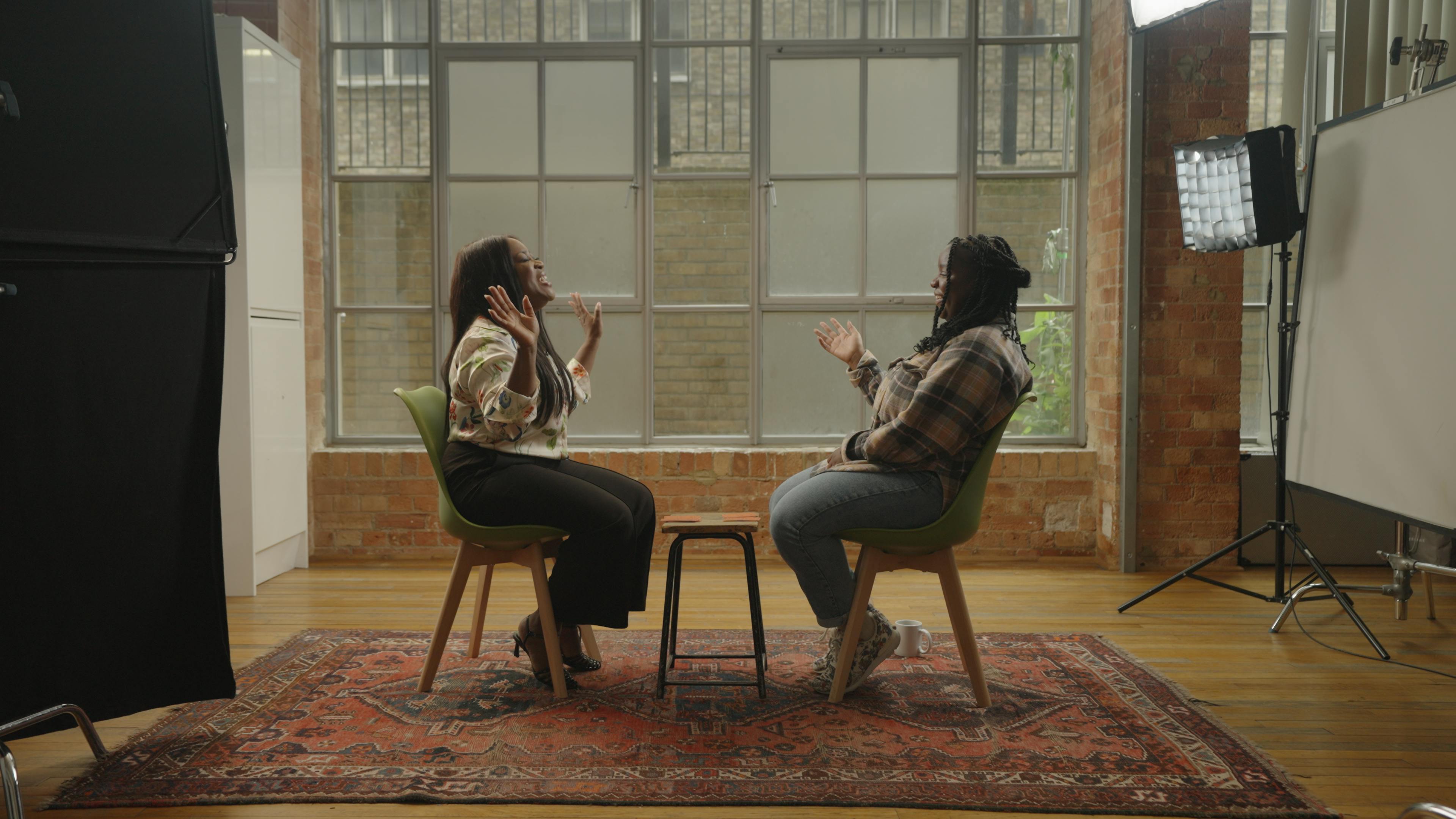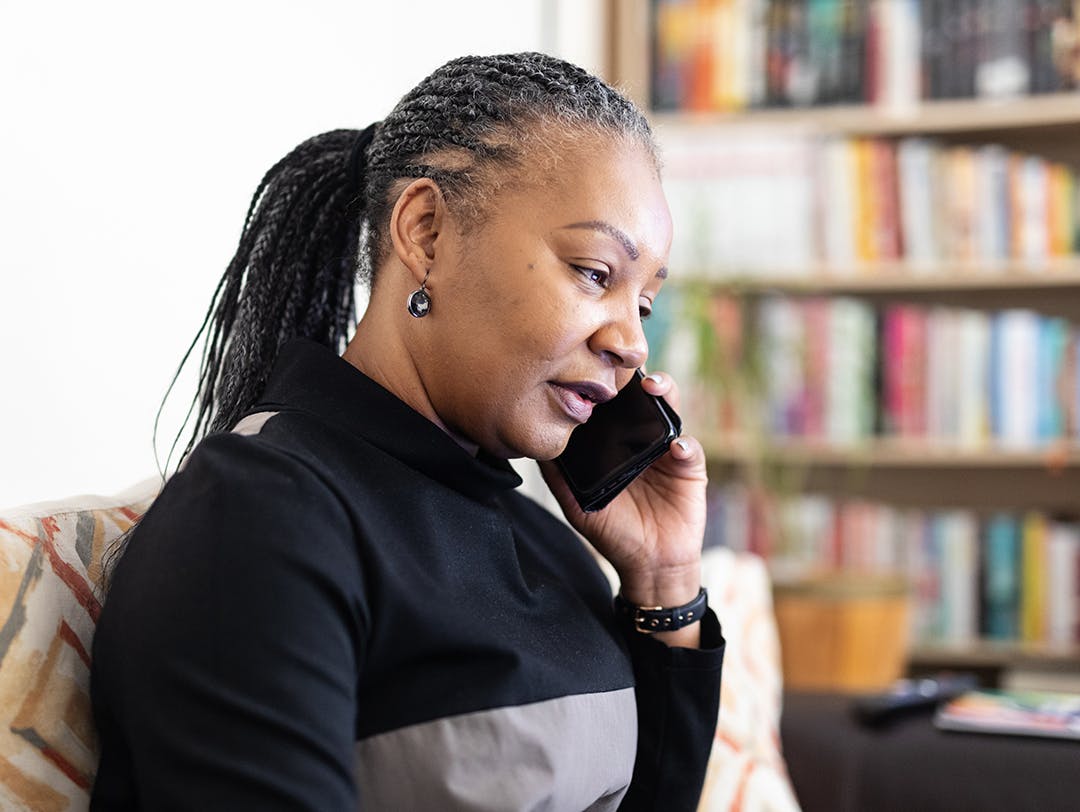THE BEST HIV CARE STARTS WITH A CONVERSATION
With more HIV treatment and prevention options available than ever before, now is the time for more open and honest conversations between individuals and their healthcare professionals (HCPs).
When people feel comfortable asking HCPs questions about options for HIV treatment or prevention, and can talk about more than just their health, it can have a significant impact on treatment satisfaction, adherence and overall health. But 3 in 4 people living with HIV say there’s at least one issue they’re uncomfortable discussing with their HCP, and for some HCPs1, uncovering the experiences of their patients beyond viral load can be difficult.
Finding the optimal HIV treatment or preventative approach goes beyond viral suppression or efficacy; factors such as tolerability, drug-to-drug interactions, adherence, daily schedules, experiences of stigma, long-term health goals – can all impact a person’s choice in different ways.
What remains the same is what’s needed to make that choice; a trusted relationship between an individual and their HCP, built on understanding and empathy, with a willingness to tackle the difficult questions together.
Living with HIV has changed. People today can expect more from their HIV medicines. We want people living with HIV or those who could benefit from PrEP to feel comfortable asking for more, raising their concerns or long term health goals and for HCPs to consider more. We want to start the conversations.
TALKING ABOUT HIV CARE
A woman born with HIV; two women navigating the world of HIV PrEP; a single father living with HIV; a devoted doctor who has been focused on HIV since the beginning. These are real conversations and real stories that highlight the value of creating strong relationships between healthcare providers and people on an HIV journey.
We partnered with The Skin Deep, an Emmy award winning company that creates content to foster deep conversations to bring together people living with HIV, people with reasons for HIV prevention, and HCPs to explore their relationships, to challenge how they connect when it comes to talking about HIV treatment and prevention, and to tackle the difficult questions together. These conversations are emotional. They can be uncomfortable. Sometimes they’re joyful! But most important, these conversations are real.
Take a peek inside the conversations and explore tools for how to strengthen relationships in HIV care.
-
From Stigma to Strength: Women’s Perspectives on HIV
-
Transforming HIV Care: The Power of Love and Understanding
-
Facing HIV: Stories of Support and Safe Spaces
-
Navigating HIV Together: A Patient-Doctor Journey
-
Breaking Barriers: A Conversation on HIV Prevention and Inclusive Healthcare
-
I Am More Than My Diagnosis: Living with HIV
-
Love Beyond Fear: A Powerful Love Story with HIV
-
Passion And Purpose: Supporting Those Living With HIV
Mercy, born with HIV, and Vanessa, an HIV Healthcare Professional, meet for the first time and discuss the concept of considering more, the need for HIV treatment choice, the impact of both social and self-stigma on maternity and pregnancy and the importance of healthcare professionals getting to know their patients on a personal level to nurture and provide the best possible care for their patients..
Garry, living with HIV, and his doctor Laura, explore how we can all contribute to building a more supportive, understanding, human, and empathetic environment for everyone navigating life with HIV. Together they talk about the importance of speaking up, combatting the misunderstanding around HIV, the value of HCPs listening to their patients and how treatments have changed over the years.
Antar, an advocate for people living with HIV, and Zandraetta, an HIV Healthcare Professional, discuss the difficulty of creating safe spaces—physically, emotionally, and free from judgment—where people living with HIV can openly share their experiences and receive the support they truly need and deserve. They connect through their commitment to sharing prevention and care information about HIV within their communities and the critical need for better conversations about sex and safety.
Rebecca and her doctor, Sanjay, discuss how they have built a strong bond that allows them to enjoy each other’s company, be radically honest with one another, and navigate Rebecca’s HIV journey together. They discuss how advances in HIV medicines have transformed many people’s outlook on life, reinforce the importance of openness and clarity between doctors and patients to ensure the best care possible, and talk about the importance of treating the person in front of you and not the diagnosis.
Angélique and Mikki have known each other for several years. Their work focuses primarily on HIV prevention and creating safe spaces where HIV patients feel comfortable enough to be honest and open about their experiences and circumstances. Together they have a powerful discussion about the need for more inclusive healthcare practices, where people feel acknowledged, respected and listened to.
Virgil, a single father speaks about the judgment and inequality that he and other people living with HIV often face. Lance shares his approach to patient care, emphasising the importance of seeing and addressing the person and their humanity before their diagnosis. Both acknowledge each other’s perspectives and experiences, relating to stigma and the misunderstanding around HIV that continues to fuel their commitment to their important work.
Nathaniel, living with HIV, and his partner Seán have been together for four years. They retrace their love story, from overcoming the fear of falling in love again to the beautiful strengths of their relationship: emotional maturity and unwavering support for one another. Nathaniel’s HIV diagnosis has never been an obstacle for them; instead, their openness about it has fostered a profound sense of appreciation and understanding between them.
Chris, advocate living with HIV, and his colleague Marta, HIV Healthcare professional, have worked together for 4 years. They explore how Marta discovered her purpose and began her trajectory into HIV medicine and discuss how Chris’s own HIV diagnosis kickstarted his journey into advocacy. While they’ve faced numerous challenges in their work, their shared passion and commitment have helped them overcome obstacles and inspire many. Their tireless efforts contribute to reducing stigma and making life easier for those affected by HIV.
START YOUR OWN CONVERSATIONS
There are resources available to facilitate and improve conversations about HIV treatment and prevention.
Talking to your doctor about your HIV and working together with your healthcare team to understand what's going on within your body may be the best way to get the most from your HIV care.
Once you've settled into your treatment regimen and the virus is undetectable, you’ll likely only need to visit your clinic once or twice a year. Some of these appointments may even be online or over the phone.
At ViiV healthcare, our goal is ambitious, yet clear: we want to end the HIV epidemic. We believe we have the tools to achieve this goal through continuous innovation, talented people and global partnerships that help us reach the communities that are disproportionately impacted by HIV. We must keep investing in the global HIV response.
References:
- ViiV Healthcare. Positive Perspectives Study, Wave 2 Results Report. Available at: https://viivhealthcare.com/content/dam/cf-viiv/viivhealthcare/en_GB/files/211203-updated-pp2-report-v9.0.pdf. Last accessed: September 2024.
NP-GBL-HVX-COCO-240046 February 2025
If you get any side effects, talk to your doctor, pharmacist, or nurse. This includes any possible side effects not listed in the package leaflet. You can also report side effects directly via the GSK Reporting Tool link https://gsk.public.reportum.com/. By reporting side effects, you can help provide more information on the safety of this medicine.
If you are from outside the UK, you can report adverse events to GSK/ ViiV by selecting your region and market, here.




